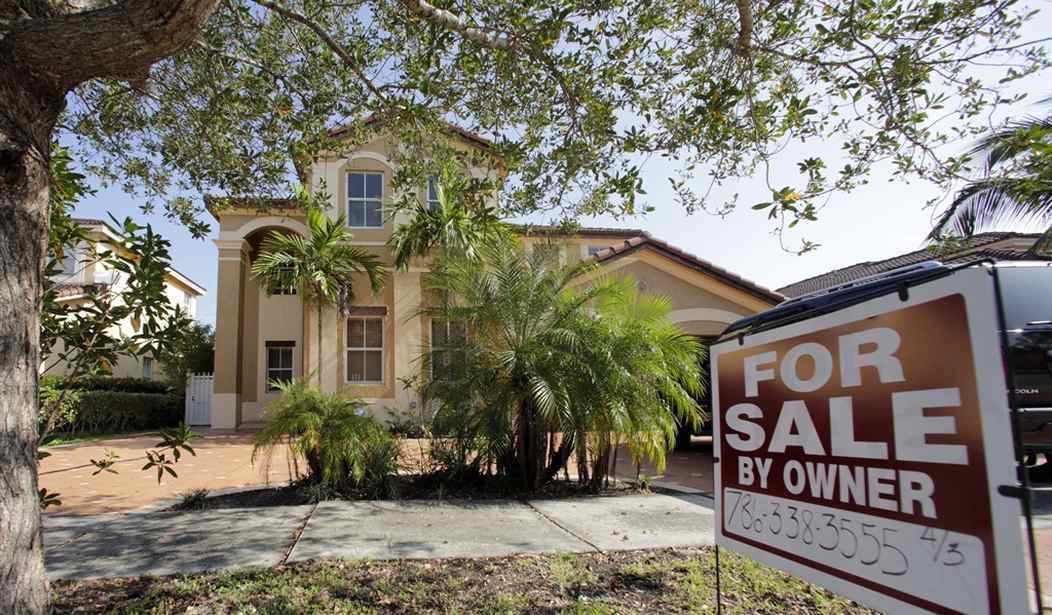What causes poverty? Crime? A lack of educational or economic opportunities? Bad luck?
In reality, it's none of those. Poverty is the default state of humanity. Until quite recently, the entirety of human history was marked by grinding, relentless poverty for all but a privileged few.
The real question isn't what causes poverty, but rather, what enables societies to create wealth?
For the past few hundred years, the answer has been crystal clear: a respect for property rights. From land deeds to patents, societies that enable people to accumulate property -- and protect it from theft -- thrive. Those that fail to protect property rights do not.
That's why it's so worrying that, for more than a decade, America has been backsliding on intellectual property protections. If we continue trending in the wrong direction, the consequences for our economy and society could be devastating. It's up to our next generation of conservative leaders to shore up these crucial protections.
Just as the deed to a house protects the owner from someone else laying claim to it, patents, trademarks, and copyrights give creators the exclusive right to own and profit from their work.
The Founding Fathers recognized the importance of patent rights in the Constitution. And they were right to do so. A recent report from the U.S. Patent and Trademark Office found that IP-intensive industries are responsible for 41% of U.S. economic activity and 44% of U.S. jobs. In 2021, the core copyright industries alone -- which include software and media -- added $1.8 trillion dollars to U.S. gross domestic product, accounting for nearly 8% of the U.S. economy and 5% of the nation's workforce.
Unfortunately, as a result of a series of Supreme Court decisions from the 2010s, confusion abounds over whether certain categories of technology -- in particular, computer-implemented inventions and medical diagnostic tools -- are eligible for patents at all. (Hint: They formerly were in America and remain patent-eligible in many foreign countries.) Further complicating matters, Big Tech companies have exploited a law signed by President Obama in 2011, the America Invents Act, to invalidate the patents of smaller competitors.
Now, and even worse, Biden-Harris administration officials and their progressive allies in Congress are contemplating steps that could sound a death knell for IP protection. The administration offered key support to an international agreement to waive vaccine patents. More recently, the administration laid out plans to let the government seize patent rights via a deliberate misinterpretation of a landmark 1980 law, the Bayh-Dole Act.
That law allowed federally funded academic labs to retain patent rights on their inventions, then license them to private companies for development into real-world products. Previously, the government retained the patent rights -- but did nothing further to develop them. The Act was a win-win-win: Universities made money plowed back into research and that rewards inventive researchers, federal investments in scientific research stopped going to waste, and American innovation went stratospheric. Bayh-Dole led to the launch of more than 17,000 startups, helped create 6.5 million jobs, and added more than a trillion dollars to U.S. gross domestic product.
Biden and Harris's proposed policy -- which is dangerously close to being finalized -- would use Bayh-Dole as a price control mechanism. If the research leading to a patent received federal funding -- in any amount, no matter how long ago -- government bureaucrats can repossess and relicense the patent if they don't like the price of the final product.
Progressive legal theorists claim that the letter of the law authorizes such action, but it plainly doesn't. The law's drafters, former Sens. Birch Bayh and Bob Dole, explicitly stated that it wasn't meant to be used as a price-capping tool. The White House plan would drive essential investment away from America's most cutting-edge industries.
Conservatives need to beat back these progressive threats. For starters, they could pass two bills currently under consideration in Congress.
The Patent Eligibility Restoration Act would more clearly define the types of inventions eligible for patenting, thereby incentivizing our top creators instead of discouraging them.
And the PREVAIL Act would level the playing field for startups and entrepreneurs whose patents are being challenged. Our innovators shouldn't have to spend time in endless legal proceedings when they could be in the lab.
And if the GOP wins back the Senate and holds the House, they could use the Congressional Review Act to overturn the Biden-Harris administration's disastrous anti-patent initiatives.
Property rights are the foundation of our economy. We weaken them at our peril.
Strengthening Intellectual Property Rights Will Strengthen America's Economy
The opinions expressed by columnists are their own and do not necessarily represent the views of Townhall.com.

Advertisement
Recommended
Trending on Townhall Videos
Advertisement
Advertisement
Advertisement
























Join the conversation as a VIP Member